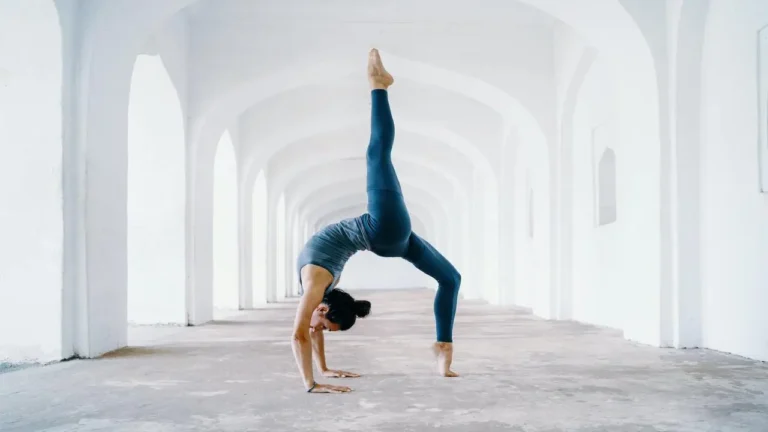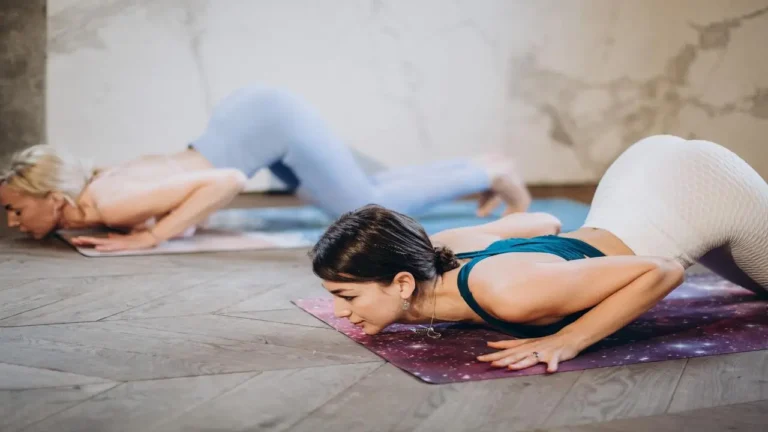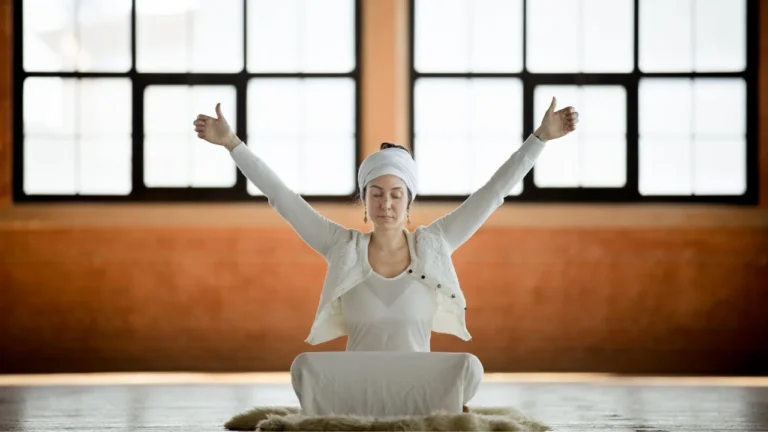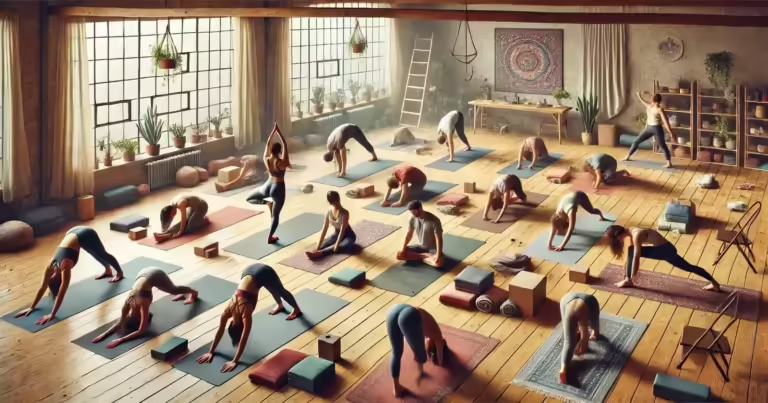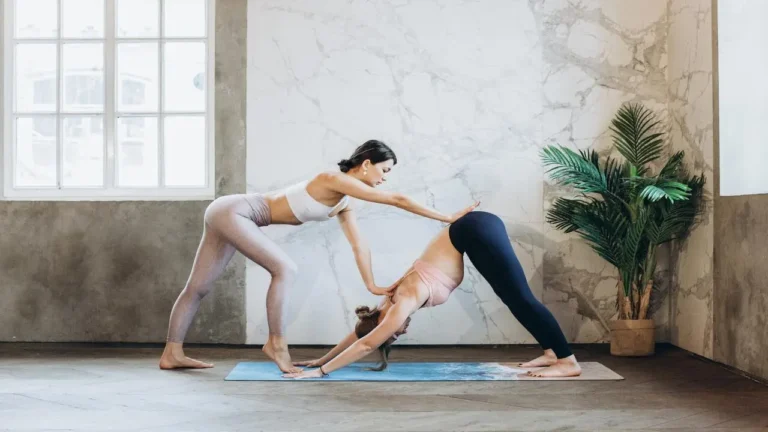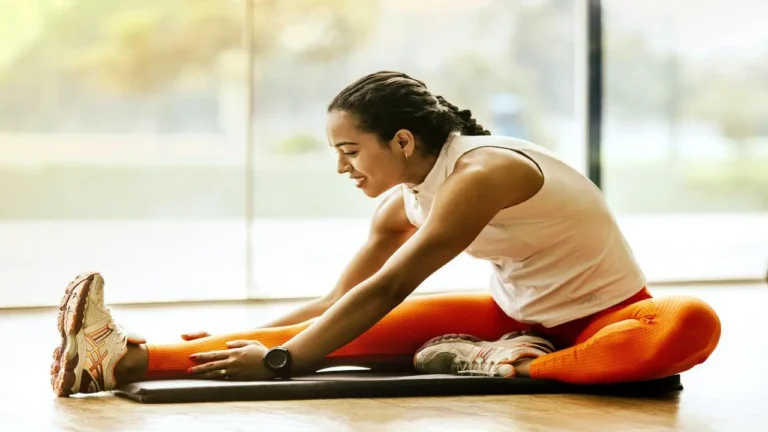Hatha Yoga: Discover Its Surprising, Benefits, And Practice Techniques
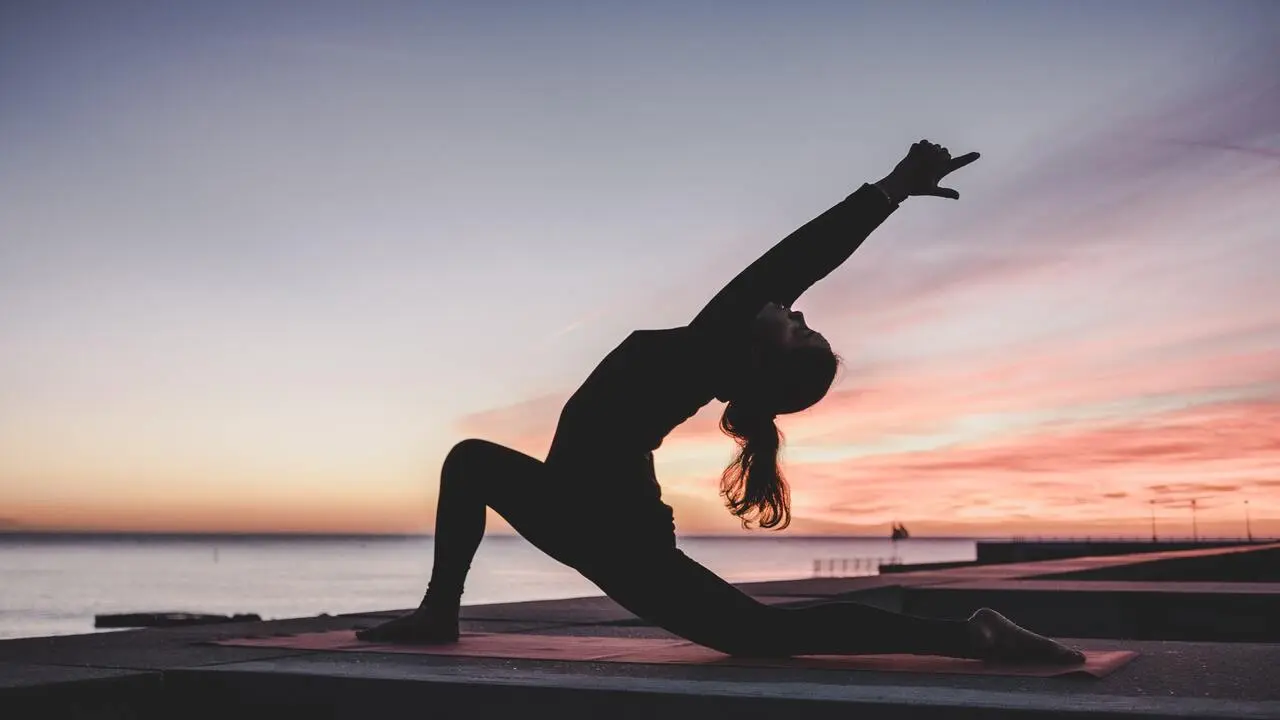
Yoga has been around for over 2,000 years in India. It started as spiritual breathing exercises to balance the body and mind.
The term “Hatha” was first written down in the 11th century. Hatha Yoga came to America in the late 19th century. It took off in the 1960s.
Today one in seven Americans practice yoga and it’s for all the good stuff for mind-body wellness.
According to the National Center for Complementary and Integrative Health, Hatha Yoga helps with stress. It supports healthy habits and emotional health. It also alleviates back and arthritis pain. Moreover, it can assist with quitting smoking.
For active moms, athletes, or anyone who wants low-impact exercise. Here’s the scoop.

What Is Hatha Yoga?
Hatha Yoga serves as a foundational approach within the broader discipline of Yoga. The term “ha” symbolizes the sun. “Tha” signifies the moon. This indicates Hatha Yoga’s role in harmonizing the dual energies within, known as the Pingala and Ida nadis.
While Hatha Yoga can transcend physical limits and dive deeper, it primarily prepares the body. This preparation enables access to higher states of being.
The way a person sits, stands, or moves can reveal their current state of mind and emotions. For example, notice how your posture shifts when you’re angry, happy, or feeling low—it’s a reflection of your inner state.
This is the basis of the science of asanas. By deliberately adopting certain physical postures, you can influence your inner experience. You can also elevate it.
The way it’s commonly practiced today often reduces Hatha Yoga to just physical exercise. This approach misses out on the deeper aspects that Hatha Yoga can offer.
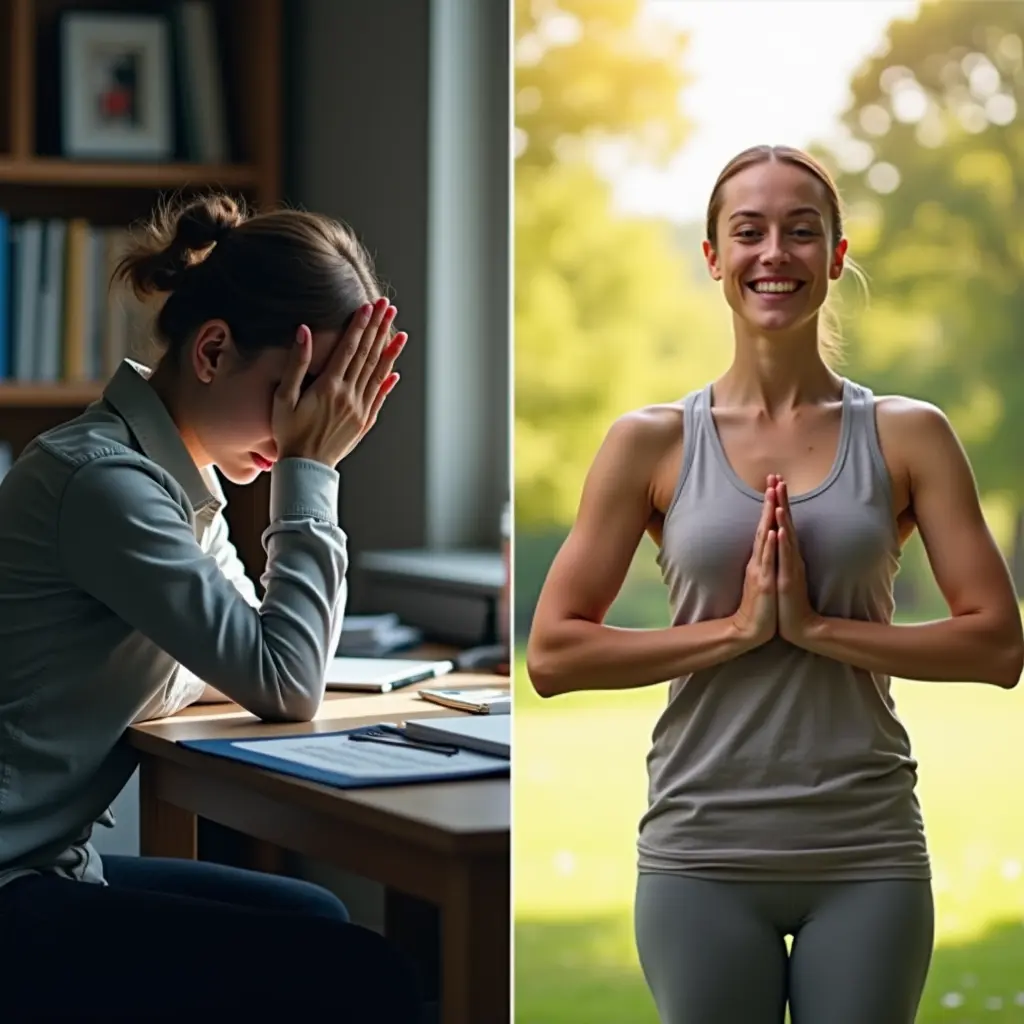
History of Hatha Yoga
Classical Hatha Yoga, developed in the 15th century, encompasses guidelines for the ideal setting. It includes postures (asanas), breathing techniques (pranayama), and hand gestures (mudras). Meditation is also emphasized, aimed at personal spiritual growth.
In 1893, Swami Vivekananda introduced Hatha Yoga to America as a spiritual practice. The 1920s saw a blend of asanas with contemporary exercises, creating a more physically oriented style. By the 1950s, Richard Hittleman’s TV program “Yoga For Health” popularized Hatha Yoga in American households.
The Maharishi Mahesh Yogi popularized it in the late 20th century. He combined transcendental meditation with yoga, and it became very famous. Now Hatha Yoga is celebrated for its physical and spiritual benefits and overall mind-body health.
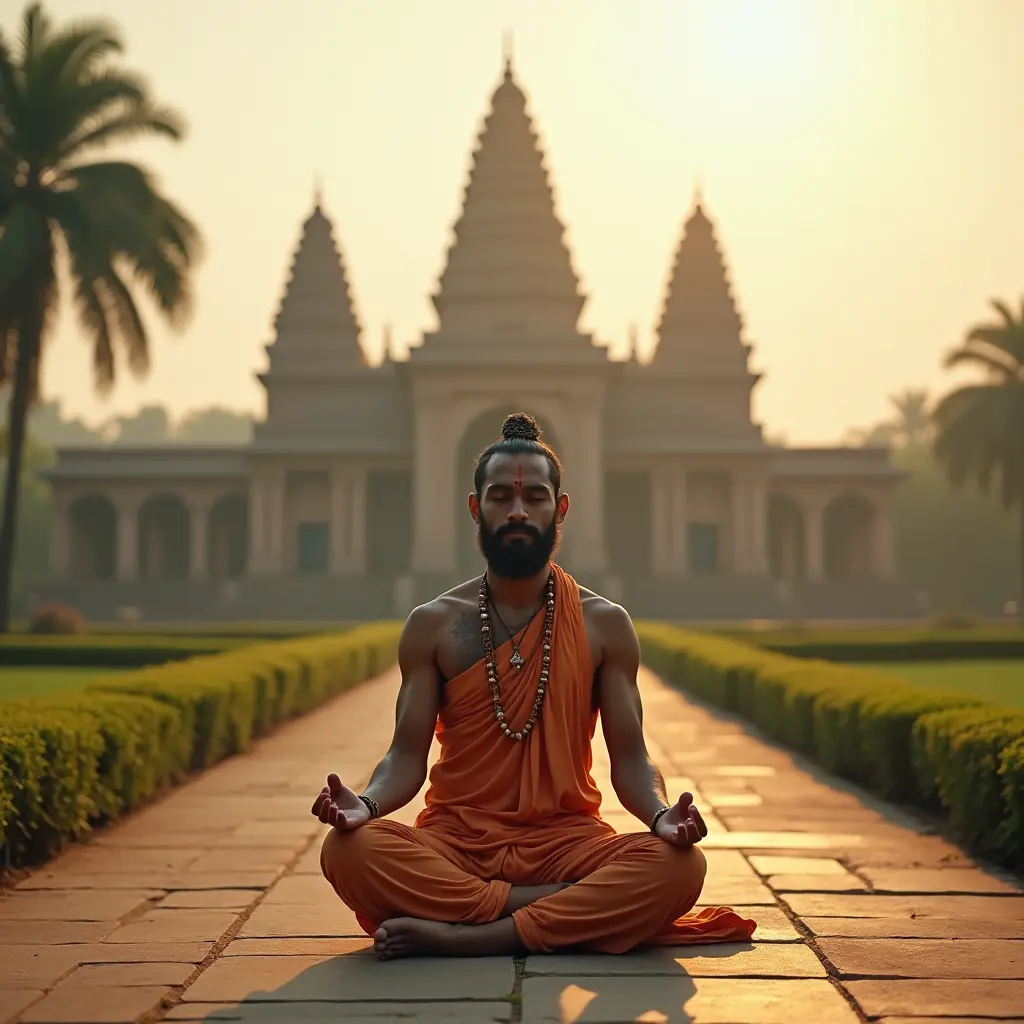
Hatha Yoga Benefits
Practitioners of yoga have long praised its calming and wellness benefits, and now research supports many of these claims.
Subscribe to Create Higher Vibrations!
Get Inspiration and Practical advice straight to your inbox.
Getting started with Hatha Yoga is simpler than you might think.
Yoga is open to everyone, no matter your age, fitness level, or flexibility. There’s no need for any specific physical abilities to begin. Whether you’re a complete beginner or more experienced, anyone can step into a Hatha class and explore its benefits.
There are plenty of yoga accessories available. The key thing to bring along is a willingness to embrace what the practice can offer. A solid yoga mat, especially if you’re planning to practice at home, is a great investment.
A quality mat can support your journey, providing stability and comfort as you build your practice. If you’re not sure where to start, check out our guide on choosing a mat that suits your needs.
Your first class might feel a bit overwhelming with new poses and terminology, but consistency is key. Over time, Hatha Yoga can become a cherished part of your routine. It helps you relax. It nurtures both your body and mind.
All you need is an open mindset, a sturdy mat, and a passion to learn. Hatha Yoga offers a range of styles. You can choose from the gentle flow of Vinyasa to the more intense pace of Power Yoga. There’s something for everyone!
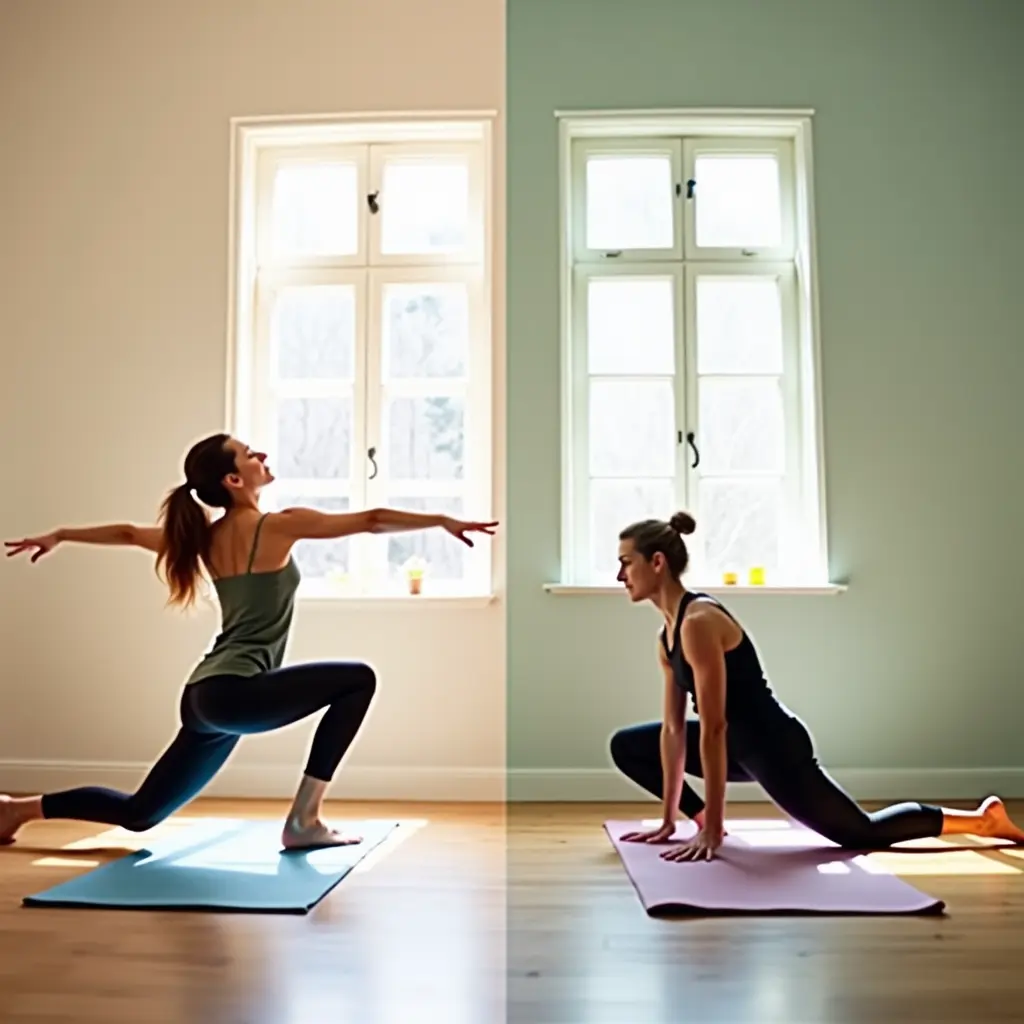
What to Expect in a Hatha Yoga Class
There are many yoga styles available, but a class labeled “yoga” often means Hatha Yoga. Hatha is known for its gentle nature. It focuses on static poses. It is great for beginners. However, it can still be physically and mentally challenging.
Wear close-fitting athletic wear and sports bras for comfort and ease of movement.
Class Structure:
A traditional Hatha Yoga class ends with participants holding their hands together in a prayer pose over the heart. They bow and say “Namaste” to each other. This symbolizes mutual respect.
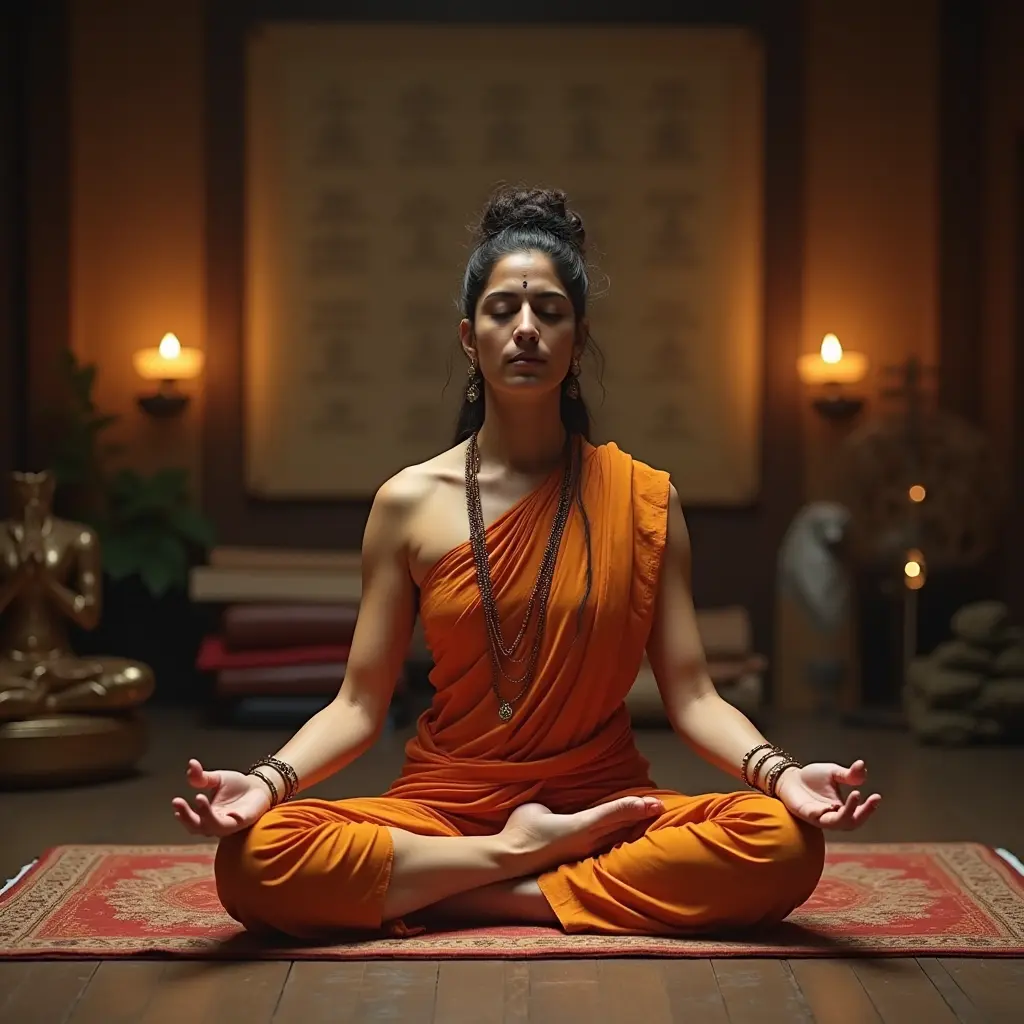
Deciding Between Hatha and Vinyasa Yoga
Both Hatha and Vinyasa yoga can effectively reduce stress and anxiety while enhancing physical fitness, flexibility, and mindfulness.
The main distinction lies in their tempo. Hatha yoga moves at a more relaxed pace, with practitioners holding each pose for multiple breaths. In contrast, Vinyasa yoga connects each movement seamlessly with the breath.
This creates a dynamic and energetic flow. It offers both cardiovascular and strength benefits.
Hatha yoga is versatile and suitable for all ages, including those looking for a gentle prenatal practice. On the other hand, Vinyasa is better suited for those with some yoga experience or seeking a more challenging routine.
To determine the style that suits you best, consult a teacher. Try out a few sessions.
Conclusion
Hatha Yoga classes provide a perfect opportunity to stretch. They allow you to unwind and release tension. This practice offers a balance to busy lifestyles and intense cardio workouts.
If a Hatha class feels too slow or not active enough for you, don’t give up on yoga altogether.
There are faster-paced, more athletic styles like flow, vinyasa, or power yoga that might better suit your needs. Exploring different types is beneficial. It can help you find the right fit for your practice. This ensures you gain the full benefits of yoga.

